Leaker, Speaker, Soldier, Spy: The Charmed Life of David Petraeus
It seems a robust Rolodex with the right global roster, a marquee name and a cultivated geopolitical brand covers a multitude of sins. And that’s precisely the type of firepower that Petraeus brings to the table.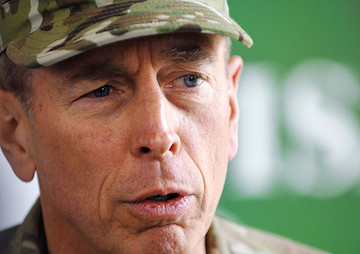 David Petraeus. (ResoluteSupportMedia / CC-BY-2.0)
1
2
3
4
David Petraeus. (ResoluteSupportMedia / CC-BY-2.0)
1
2
3
4
Marshall may have been a paragon of restraint and moral rectitude, but he wasn’t alone. As late as the years 1994-1998, according to an analysis by the Boston Globe, fewer than 50% of retiring three- and four-star officers went to work as consultants or defense executives. By 2004-2008, that number had jumped to 80%. An analysis by the Washington D.C.-based nonprofit group, Citizens for Responsibility and Ethics in Washington, found that it was still at a lofty 70% for the years 2009-2011.
Celebrity generals like Petraeus and fellow former four-star generals Stanley McChrystal (whose military career was also consumed in the flames of scandal) and Ray Odierno (who retired amid controversy), as well as retired admiral and former chairman of the Joint Chiefs of Staff, Mike Mullen, don’t even need to enter the world of arms dealers and defense firms. These days, those jobs may increasingly be left to second-tier military luminaries like Marine Corps general James Cartwright, the former vice chairman of the Joint Chiefs of Staff, now on the board of directors at Raytheon, as well as former Vice Admiral and Director of Naval Intelligence Jack Dorsett, who joined Northrop Grumman.
If, however, you are one of the military’s top stars, the sky is increasingly the limit. You can, for instance, lead a consulting firm (McChrystal and Mullen) or advise or even join the boards of banks and civilian corporations like JPMorgan Chase (Odierno), Jet Blue (McChrystal), and General Motors (Mullen).
For his part, after putting his extramarital affair behind him, Petraeus became a partner at the private equity firm Kohlberg, Kravis, Roberts & Co. L.P. (KKR), where he also serves as the chairman of the KKR Global Institute and, according to his bio, “oversees the institute’s thought leadership platform focused on geopolitical and macro-economic trends, as well as environmental, social, and governance issues.” His lieutenants include a former chairman of the Republican National Committee and campaign manager for President George W. Bush, as well as a former leading light at Morgan Stanley.
KKR’s portfolio boasts a bit of everything, from Alliant Insurance Services and Panasonic Healthcare to a host of Chinese firms (Rundong Automobile Group and Asia Dairy, among them). There are also defense firms under its umbrella, including TASC, the self-proclaimed “premier provider of advanced systems engineering and integration services across the Intelligence Community, Department of Defense, and civilian agencies of the federal government,” and Airbus Group’s defense electronics business which KKR recently bought for $1.2 billion.
KKR is, however, just where Petraeus’s post-military, post-CIA résumé begins.
A Man for Four Seasons
“Nobody thinks of assigning him, when they stop wining and dining him,” wrote Irving Berlin 68 years ago.
How times do change. When it comes to Petraeus, the wining and dining is evidently unending — as when Financial Times columnist Edward Luce took him to the Four Seasons Restaurant earlier this year for a lunch of tuna tartare, poached salmon, and a bowl of mixed berries with cream.
At the elegant eatery, just a short walk from Petraeus’s Manhattan office, the former CIA chief left Luce momentarily forlorn. “When I inquire what keeps him busy nowadays his answer goes on for so long I half regret asking,” he wrote.
I evidently heard a version of the same well prepared lines when, parrying a question from journalist Fred Kaplan at the New America event I attended, Petraeus produced a wall of words explaining how busy he is. In the process, he shed light on just what it means to be a retired celebrity general from America’s winless wars. “I’ve got a day job with KKR. I teach once a week at the City University of New York — Honors College. I do a week per semester at USC [University of Southern California]. I do several days at Harvard. I’m on the speaking circuit. I do pro bono stuff like this. I’m the co-chairman of the Wilson Institute’s Global Advisory Council, the senior vice president of RUSI [Royal United Services Institute, a research institution focused on military issues]. I’m on three other think tank boards,” he said.
In an era when fellow leakers of government secrets — from National Security Agency (NSA) whistleblower Edward Snowden to CIA whistleblower John Kiriakou to Army whistleblower Chelsea Manning — have ended up in exile or prison, Petraeus’s post-leak life has obviously been quite another matter.
Dig, Root, GrowThis year, we’re all on shaky ground, and the need for independent journalism has never been greater. A new administration is openly attacking free press — and the stakes couldn’t be higher.
Your support is more than a donation. It helps us dig deeper into hidden truths, root out corruption and misinformation, and grow an informed, resilient community.
Independent journalism like Truthdig doesn't just report the news — it helps cultivate a better future.
Your tax-deductible gift powers fearless reporting and uncompromising analysis. Together, we can protect democracy and expose the stories that must be told.
This spring, stand with our journalists.
Dig. Root. Grow. Cultivate a better future.
Donate today.


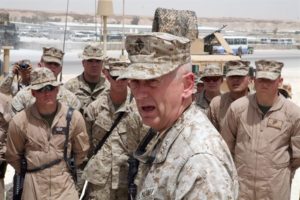

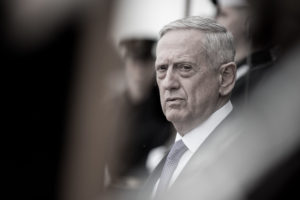
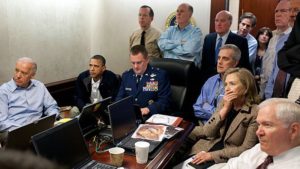
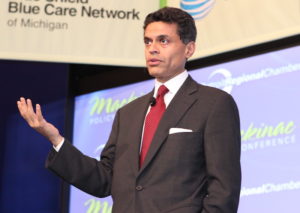

You need to be a supporter to comment.
There are currently no responses to this article.
Be the first to respond.